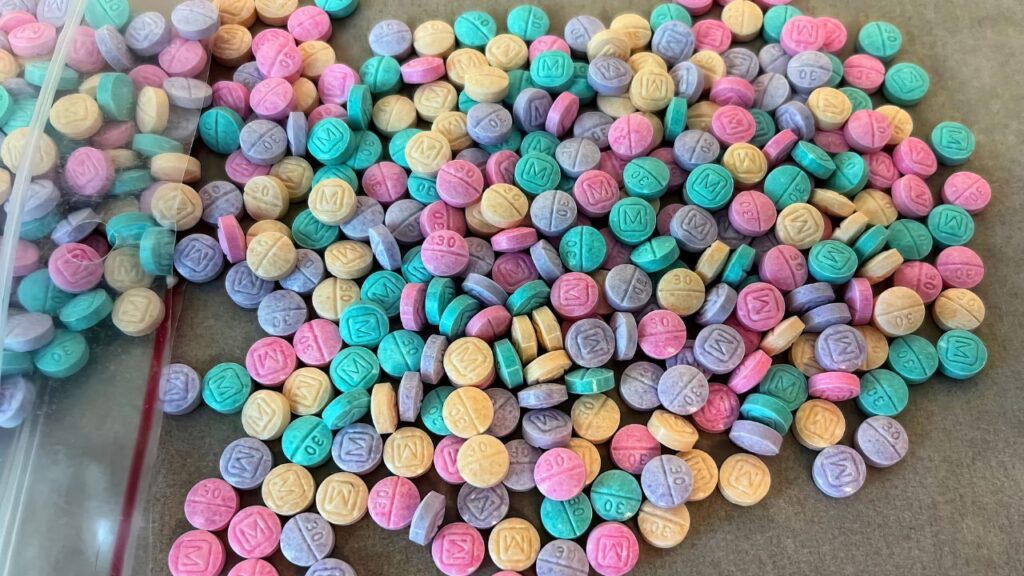Fentanyl, a powerful synthetic opioid, has become a major contributor to the ongoing opioid epidemic in the United States. Its potency and the increasing prevalence of illicitly manufactured fentanyl have raised concerns about the drug’s lethal potential. In this article, we will explore the factors that influence fentanyl’s lethality and discuss the critical role of addiction treatment centers like JourneyPure At The River in combating fentanyl addiction.
Fentanyl’s Potency
Fentanyl is 50 to 100 times more potent than morphine, making it one of the strongest opioids available. Its high potency allows it to rapidly cross the blood-brain barrier, leading to a swift onset of effects. This characteristic also contributes to its potential for overdose, as even small variations in dosage can have severe consequences.
Fentanyl was initially developed as a pain management medication for patients with severe, chronic pain conditions, such as cancer. Its potency made it an effective option for individuals who had developed a tolerance to other opioids. However, the drug’s strength has also made it a target for illicit manufacturing and distribution.

Lethal Dose of Fentanyl
The lethal dose of fentanyl varies depending on an individual’s tolerance, body weight, and other factors. However, a dose as small as 2 milligrams can be fatal for most people. To put this into perspective, 2 milligrams of fentanyl is comparable to a few grains of salt. The drug’s potency and the minuscule amount required for a lethal dose make it particularly dangerous, especially when mixed with other substances.
It is essential to note that the lethal dose is significantly lower than that of other opioids. For example, the lethal dose of heroin is estimated to be between 75 and 375 milligrams, while the lethal dose of oxycodone is around 40 milligrams. This stark difference in potency highlights the inherent dangers associated with fentanyl use.
Factors Influencing Fentanyl’s Lethality
Several factors can influence the lethality:
- Tolerance: Individuals with a higher opioid tolerance may require larger doses to achieve the desired effects, increasing the risk of overdose.
- Polysubstance use: Combining fentanyl with other depressants, such as alcohol or benzodiazepines, can amplify its respiratory-depressing effects, leading to a higher risk of overdose and death.
- Inconsistent potency: Illicitly manufactured fentanyl often has inconsistent potency, making it difficult for users to gauge the appropriate dose and increasing the likelihood of accidental overdose.
- Route of administration: The method of fentanyl use can impact its lethality. Intravenous injection and snorting can lead to rapid absorption and a higher risk of overdose compared to transdermal patches or lozenges.
- Underlying health conditions: Pre-existing medical conditions, such as respiratory problems or cardiovascular disease, can increase an individual’s susceptibility to fentanyl overdose.
Fentanyl’s Prevalence in the Opioid Epidemic
The opioid epidemic has been fueled in recent years by the increasing presence of illicitly manufactured fentanyl. According to the Centers for Disease Control and Prevention (CDC), synthetic opioids, primarily fentanyl, were involved in nearly 88% of all opioid-related deaths in 2021. This alarming statistic underscores the urgent need for effective prevention, education, and treatment strategies to combat fentanyl addiction.
One of the most significant challenges in addressing fentanyl addiction is the drug’s prevalence in counterfeit pills and its use as an adulterant in other illicit substances, such as heroin and cocaine. Many individuals may unknowingly consume it, putting themselves at risk of overdose and death.
Seeking Help for Fentanyl Addiction
Fentanyl addiction is a serious and life-threatening condition that requires professional intervention. At JourneyPure At The River, we understand the challenges faced by those struggling with fentanyl addiction and offer comprehensive treatment programs tailored to individual needs.
Our team of experienced addiction specialists employs evidence-based therapies, including medically supervised detoxification, behavioral therapies, and medication-assisted treatment (MAT) to help clients overcome addiction. We also provide a supportive and nurturing environment that promotes long-term recovery and helps individuals build the skills necessary to maintain sobriety.
Some of the specific therapies and services we offer include:
- Cognitive-behavioral therapy (CBT): CBT helps individuals identify and change negative thought patterns and behaviors associated with addiction.
- Family therapy: Addiction often affects the entire family, and our family therapy sessions help to rebuild relationships and foster a supportive home environment.
- Aftercare planning: We work with clients to develop comprehensive aftercare plans that include ongoing support, relapse prevention strategies, and connections to community resources.

Get Help For An Opioid Addiction Today
If you or a loved one is battling addiction, do not wait until it is too late. Seek help today by calling JourneyPure At The River at 615-410-9260. Our compassionate admissions team is available 24/7 to answer your questions, provide guidance, and help you take the first step towards a healthier, drug-free life.
